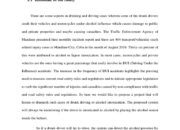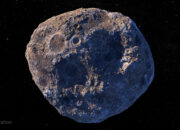As humanity stands on the precipice of an unprecedented era in cosmic exploration, the question looms: what lay within the celestial vault in the coming decades? The advent of powerful technological advancements, coupled with international collaborations, unveils the potential for monumental discoveries that may unravel the myriad enigmas of the universe. Astronomers, armed with sophisticated instruments and an insatiable curiosity, are poised to embark on this grand journey. However, one must ponder: can we truly fathom the unbounded realms beyond our own planetary cradle?
The field of astronomy has experienced a renaissance over the past few years, characterized by surges in funding, novel observational methodologies, and sweeping innovations in data analysis. One of the most prominent developments is the deployment of next-generation space telescopes, such as the James Webb Space Telescope (JWST). Its advanced infrared capabilities allow astronomers to observe celestial phenomena previously shrouded in obscurity, unveiling the formation of distant galaxies, probing the atmospheres of exoplanets, and mapping the intricate web of dark matter. Yet, will reliance on a handful of mighty instruments stifle the diversity of methodologies necessary to probe the cosmos? As researchers clamor for time on such prized assets, smaller, innovative observatories designed for niche studies may vanish from the scene, limiting our cosmic perspective.
Simultaneously, the concept of transcending observational limitations through technological augmentation has gained traction. With the advent of machine learning and artificial intelligence, astronomers are tasked with managing a deluge of data and discerning the patterns within. Algorithms sift through trillions of celestial pixel data in search of significant anomalies. The real challenge, however, lies not in the volume of data but in the ability to discern meaningful insights from the overwhelming noise. Can algorithms truly capture the complexity of the universe’s tapestry, or do they risk oversimplifying the very enigmas that compel philosophical inquiry?
Collaboration has emerged as a hallmark of contemporary astronomy, enabling unprecedented levels of research and discovery. Projects like the Square Kilometre Array (SKA) epitomize this trend, gathering vast quantities of radio wave data from across the cosmos. Understanding the origin and evolution of the universe, including the implications of cosmic reionization and the existence of primordial gravitational waves, will hinge on the collective efforts of thousands of scientists. However, the challenge remains: how to effectively harmonize disparate scientific cultures, methodologies, and priorities in pursuit of a unified goal?
The interdisciplinary nature of cosmic inquiry is expanding as well. Fields such as biology and geology increasingly intersect with traditional astronomical study. The search for extraterrestrial life, once considered the purview of astrobiologists, now tantalizes astronomers as telescopes examine exoplanetary atmospheres for biosignatures. Notably, missions like the Mars 2020 Perseverance rover or the upcoming Europa Clipper are telling us more than just planetary geology; they engage profound questions regarding the origins of life itself. Yet, methodologies from differing disciplines require more than mere overlap; fostering unity is essential. Will the growing interplay among various scientific domains accelerate the quest for knowledge, or will disciplinary silos hinder collaborative progress?
Moreover, the study of gravitational waves represents another frontier in astronomical research. The advent of facilities like LIGO has catalyzed our understanding of the violent universe, as these ripples in spacetime unveil phenomena such as colliding black holes and neutron stars. Herein lies a compelling challenge: gravity does not serve as a singular lens through which all cosmic phenomena may be observed. The wealth of data from these events must be integrated with traditional electromagnetic observations to form a holistic understanding of cosmic events. As astronomers grapple with these multifaceted datasets, will the quest for coherence render them myopic in their understanding?
In contemplating the next cosmic era, it is imperative to also address the ethical dimensions of our astronomical pursuits. As telescopes scan the skies for potential habitable worlds, how do we reconcile the urge to explore with the moral implications of potential colonization? The question of stewardship looms large—will our quest for knowledge lead to exploitation or will humanity embrace a conservationist ethic regarding celestial bodies? These deliberations transcend empirical science, demanding philosophical engagement across disciplines.
An additional layer of complexity arises from accessibility and equity in astronomical research. The democratization of access to data through open-source platforms has catalyzed a burgeoning interest in citizen science. Amateur astronomers now contribute invaluable observations and data processing power, enhancing the collective enterprise. Yet, as budding enthusiasts intersect with seasoned professionals, how can the integrity of scientific inquiry be maintained while fostering inclusivity? Can NASA’s and ESA’s efforts in outreach effectively bridge the gap, or will they inadvertently entrench disparities in scientific literacy?
With each new advancement, the realm of astronomical inquiry expands, opening myriad possibilities that challenge our traditional notions of the universe. As astronomers peer into the cosmic ocean, they wade deeper into philosophical conundrums and ethical dilemmas, navigating technocratic hindrances and inter-disciplinary frictions. Thus, as humanity sets its collective gaze toward the heavens, one must ask: can we rise to the challenges of the 21st century, and in doing so, cultivate not only a deeper understanding of the cosmos but also foster a responsible stewardship of its myriad wonders? This future beckons not merely for answers but for a shared vision that harmonizes knowledge with ethics, bridging the chasm between inquiry and impact.












